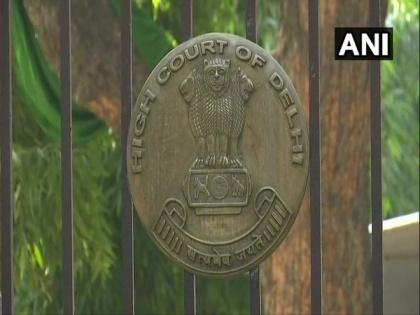One can't be denied his right to deal in property after 180-day PAO validity expires: Delhi HC
By ANI | Published: November 21, 2020 01:08 AM2020-11-21T01:08:44+5:302020-11-21T01:30:03+5:30
The Delhi High Court has held that a person, against whom a Provisional Attachment Order (PAO) is passed, can't be deprived of his right to deal in the property, against which the attachment is ordered, after its validity period of a "maximum of 180 days" expires.

One can't be denied his right to deal in property after 180-day PAO validity expires: Delhi HC
The Delhi High Court has held that a person, against whom a Provisional Attachment Order (PAO) is passed, can't be deprived of his right to deal in the property, against which the attachment is ordered, after its validity period of a "maximum of 180 days" expires.
"The Adjudicating Authority under the Prevention of Money Laundering Act (PMLA), 2002, cannot continue adjudication of a Provisional Attachment Order (PAO) once the 180-day period of validity... expires, on account of the authority being rendered functus officio (whose mandate has expired)," the High Court observed while passing an order on November 18.
The court also held that the period of 180 days of validity is mandatory and there is no power vested in any court or authority to extend this.
The Bench of Justice Navin Chawla was hearing a petition by firm M/S Vikas WSP and others raising a question on the effect of the lockdown, declared by the central government due to the outbreak of the COVID-19 pandemic, on the period of the Provisional Attachment Orders passed under Section 5(1) of the Prevention of Money Laundering Act, 2002.
The petitioners, represented by senior advocate Dayan Krishnan with advocates Arshdeep Singh, Akshat Gupta, and Rajshree Sharma, submitted that the provisions of sub-section (1) and sub-section (3) of Section 5 provide for the maximum period of the validity of a Provisional Attachment Order and on its expiry, it ceases to have effect without any further action/omission on part of any authority.
The lawyers also submitted that even if the period of the lockdown declared by the Government of India has to be excluded, that is between March 24, 2020, and April 20, 2020, 180 days from passing of the Provisional Attachment Order would have expired by June 16, 2020, which was the next date of hearing, rendering the Adjudicating Authority "functus officio" thereafter.
Counsels for the respondents, Enforcement Directorate and others, advocate Amit Mahajan, Mallika Hiremath and Atul Tripathi, submitted that the proceedings before the adjudicating authority are in the nature of quasi-judicial proceedings and it is a settled principle of law that a party cannot be prejudiced by the act or omission of a court. The lawyers also submitted that the delay in completion of the proceedings before the adjudicating authority, not being attributable to the respondents, the respondents cannot be prejudiced by the same.
The court, however, noted that in the present case, the Act clearly deprives the person against whom the Provisional Attachment Order is passed of his right to deal in the property against which the attachment is ordered.
"Such deprivation can, therefore, be for a maximum of 180 days and no further, except where such (an) order is confirmed by the Adjudicating Authority prior thereto under Section 8(3) of the Act. Once the 180 day period has lapsed without such order being passed..., the Provisional Attachment Order ceases to have effect and therefore, there is no order before the Adjudicating Authority to confirm under Section 8(3) of the Act. The Adjudicating Authority, therefore, becomes functus officio and there is no power with any Authority or the Court to relax or extend the validity of the Provisional Attachment Order," the court said.
( With inputs from ANI )
Disclaimer: This post has been auto-published from an agency feed without any modifications to the text and has not been reviewed by an editor
Open in app